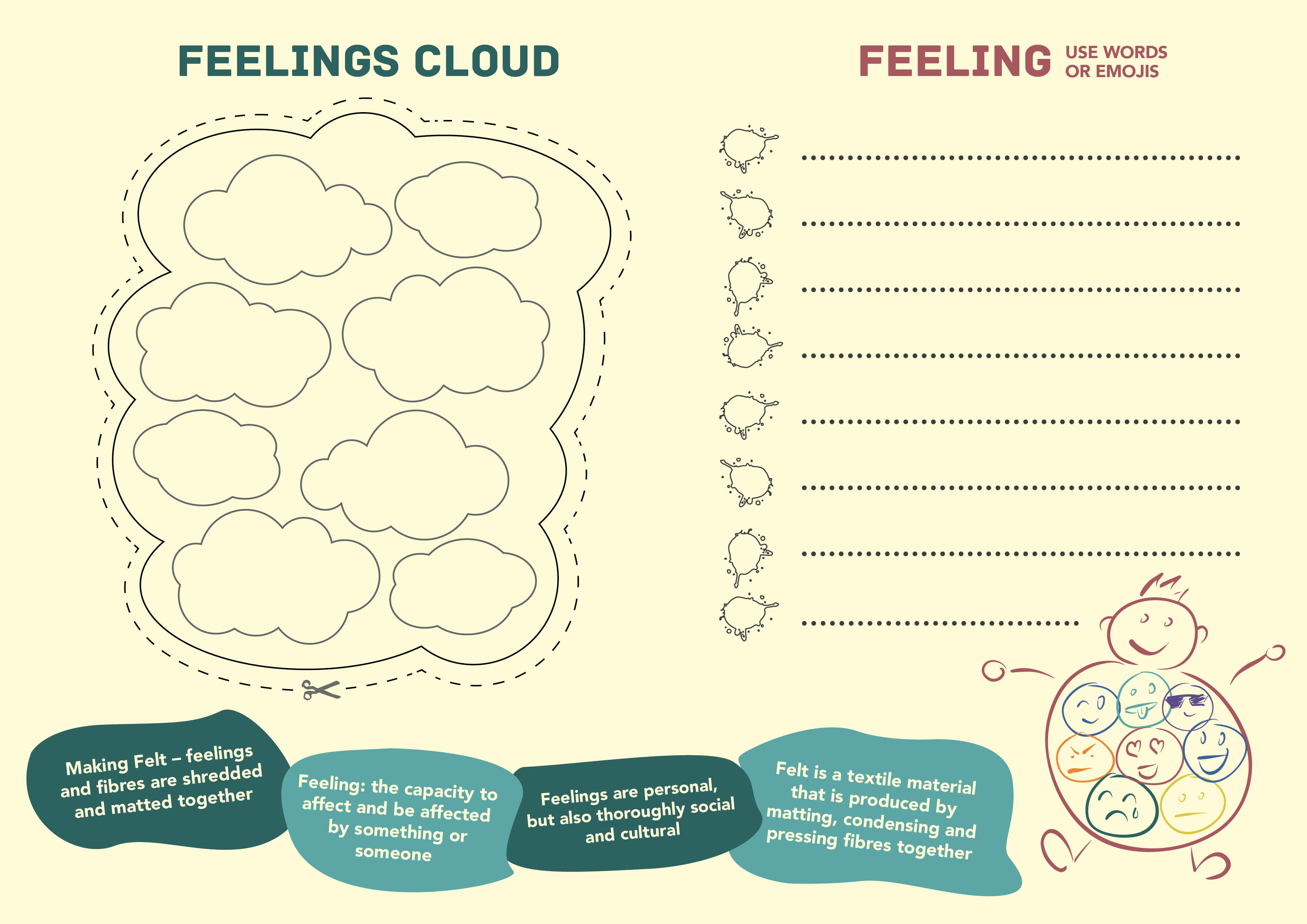
“I feel sick”, “I feel MAD”, “I’m shaking”, “I’m excited” – these are just some of the feelings children and young people expressed in the making of the AGENDA case studies as they learned and wanted to do something about the injustice, harm and violence in the world.
As one Welsh primary schools motto reads: “it’s ok, not to be ok”. But how do we make a space for feeling, naming and expressing the emotions in our change-making activities?
“Felt Feelings” is something you can use before, alongside or following any of the activities in the AGENDA resource. For more ideas, try out the Moody Jars and Mood Strips.
FELT FEELING CLOUD
1: Print out copies of the Felt Feelings Cloud
2: Make a list of all the feelings you can think of. This emotions-dictionary might help you get started. Write them in the ‘feeling’ column or use emojis.
3: Choose a colour for each feeling (e.g. blue for pain, orange for mad etc.). Pull out the coloured felt (using hands or a wire brush) and glue next to the feeling, or, use coloured pens if this is too tricky.
4: Using the rest of the felt, shred, matt together and press your felt to make your Felt Feeling Cloud.
5: Cut out your Felt Feeling Cloud and hang in a place of your choice (e.g. from the classroom ceiling). You could stick the feelings column on the back of your cloud.
6: If you want to get more creative in crafting with felt, try wet felting or make a felt fabric collage with messages for change (see Runway 4 Change and What Jars You starter activities). Choose and blend different coloured felts with the emotions you feel in your change-making felt artefact.


Feminist Felting
Felt and Fibre Arts Activism
40 books on managing emotions
Living With Feelings Project
History of Emotions Blog
De-bunking the myth about boys and emotions
Emotional labour around the world
50 Ways People Expect Constant Emotional Labour from Women and Femmes
Listen and move to the soundtrack “I FEEL” from the EveryBODY Matters case study.





